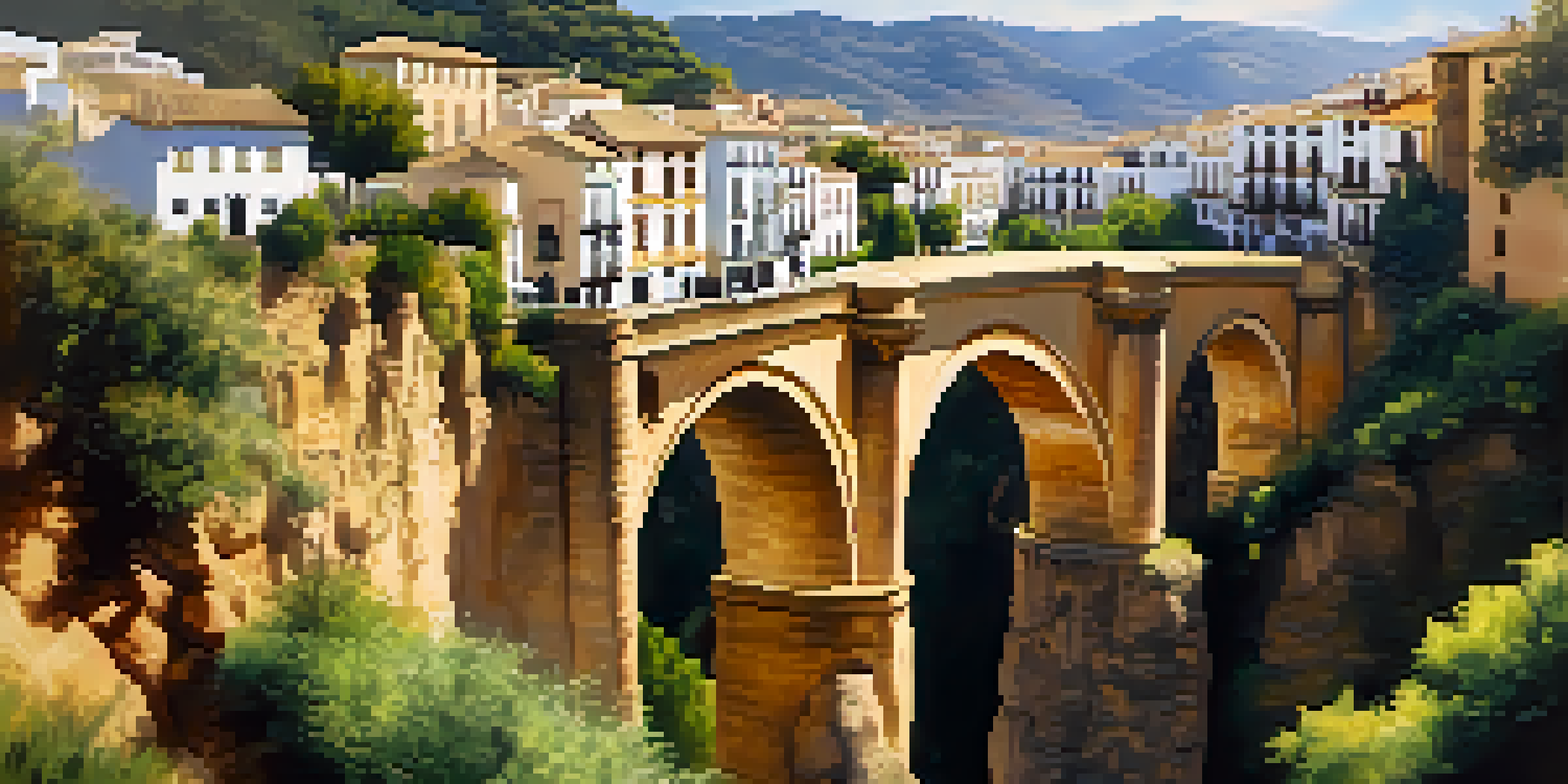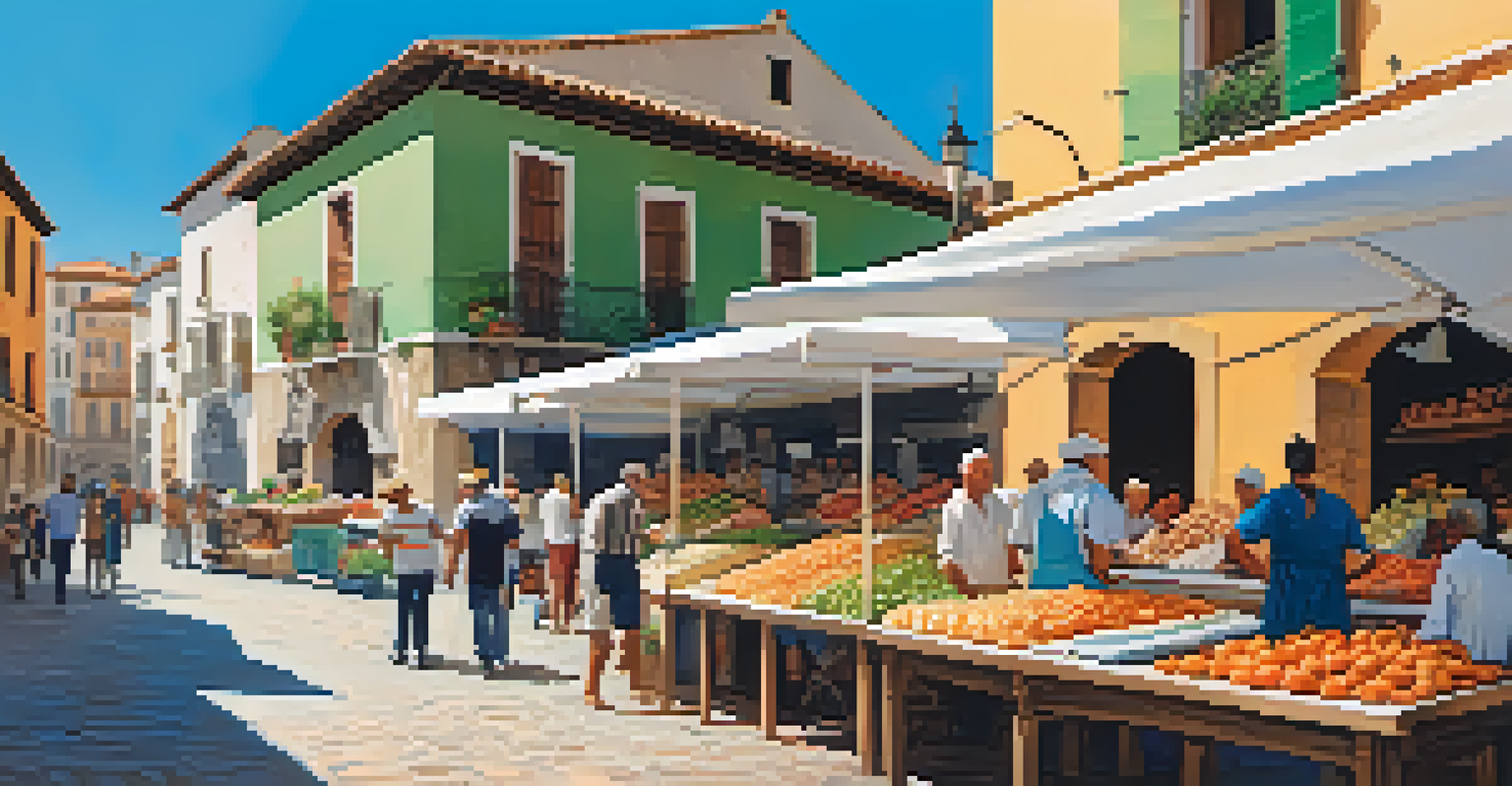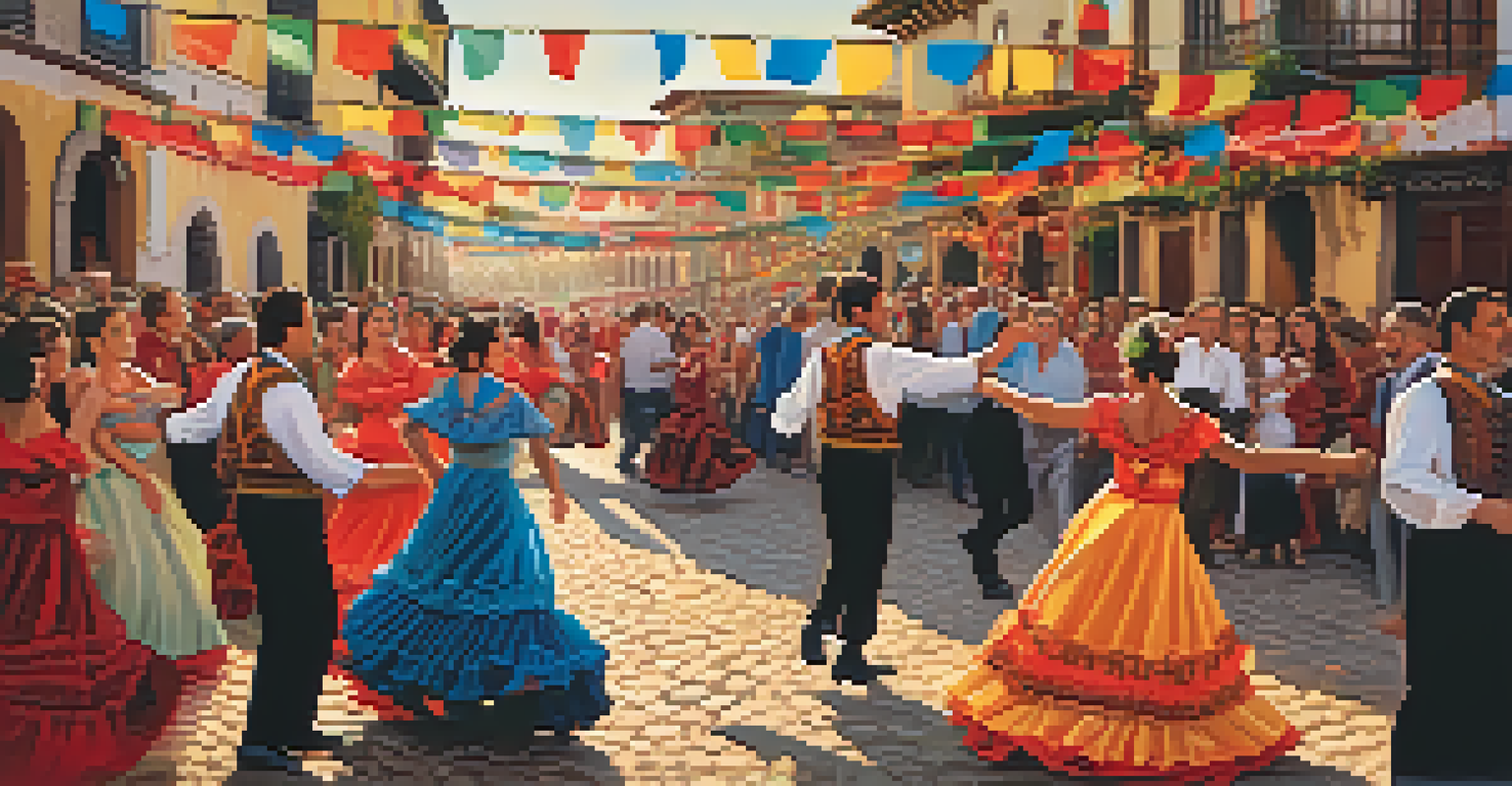Unveiling Spain's Cultural Heritage Beyond the Tourist Trails

The Allure of Lesser-Known Spanish Towns
When you think of Spain, cities like Barcelona and Madrid often come to mind. However, the country is dotted with charming towns that offer a glimpse into its authentic culture. Places like Ronda and Cadaqués showcase stunning architecture, local traditions, and a slower pace of life that many travelers crave.
The best way to understand a culture is to live it, to experience it, and to embrace the stories of its people.
Exploring these towns is like opening a time capsule, where you can wander past ancient castles, and traditional markets, and into the homes of local artisans. Each corner reveals a story, from the Moorish influences in Andalusia to the vibrant colors of Catalan houses. It's a refreshing break from the hustle and bustle of tourist hotspots.
Moreover, these hidden gems often host festivals and community events that celebrate their heritage. Engaging with locals during such festivities can provide insights into their customs and way of life, making your visit not just a trip, but a genuine cultural experience.
Delving into Spain's Rich Culinary Traditions
Spain's culinary landscape is as diverse as its geography, with each region boasting unique flavors and dishes. Beyond the famous paella and tapas, there's a wealth of local specialties waiting to be discovered. For instance, in Asturias, you can savor the rich flavors of fabada, a hearty bean stew that embodies the spirit of northern Spain.

Food markets in smaller towns are treasure troves for anyone looking to taste authentic cuisine. Here, you can find local produce, artisanal cheeses, and cured meats that reflect the area's agricultural roots. Engaging with vendors can also lead to cooking classes or food tours, adding another layer to your culinary adventure.
Discover Spain's Hidden Towns
Lesser-known Spanish towns offer authentic cultural experiences, stunning architecture, and local traditions away from the tourist crowds.
Don't forget about Spain's wine regions, where you can explore vineyards that are rich in history. Many of these wineries offer tastings and tours, allowing you to experience the process of winemaking firsthand. Pairing local dishes with regional wines elevates your understanding and appreciation of Spanish culture.
Experiencing Traditional Spanish Festivals
Spain is renowned for its vibrant festivals, but many take place far from the typical tourist trails. From the colorful Fallas in Valencia to the intimate Feria de Abril in Seville, these events showcase local traditions and community spirit. Experiencing these festivals allows you to witness the passion and pride that locals have for their heritage.
Travel is about the gorgeous feeling of teetering in the unknown.
Participating in traditional dances, music, and culinary activities during these festivals can offer a hands-on experience of Spanish culture. Imagine twirling in a flamenco dress or savoring homemade churros while surrounded by the sounds of live music. It's an inviting atmosphere that often feels like a family gathering.
Moreover, these festivals often have deep-rooted historical significance, celebrating everything from agricultural cycles to religious events. Learning about the stories behind these traditions can deepen your appreciation for Spain's rich cultural tapestry.
Exploring Spain's Artistic Heritage
Art lovers will find that Spain is a canvas of creativity, extending far beyond the works of Picasso and Dalí. Many small towns are home to local artists who draw inspiration from their surroundings. Visiting local galleries or artist studios can provide a unique insight into their creative processes and cultural influences.
Street art has also become a significant part of Spain's urban landscape, particularly in cities like Barcelona and Valencia. Here, vibrant murals tell stories of social issues, history, and personal expression. Taking a street art tour can lead you to hidden masterpieces that many visitors overlook.
Savor Spain's Culinary Delights
Spain's diverse culinary landscape invites exploration of regional specialties and local markets, enriching your taste of the country's culture.
Additionally, traditional crafts such as pottery, textiles, and leatherwork are still alive in many regions. Workshops offer a chance to learn these skills from master artisans, allowing you to create a personal memento of your journey while supporting local craftsmanship.
Uncovering Spain's Architectural Wonders
Spain's architectural heritage is a fascinating blend of influences from various cultures, including Roman, Moorish, and Gothic. While landmarks like the Sagrada Familia are iconic, many lesser-known structures tell stories of the past. For example, the Alcazaba in Almería is an impressive fortress that offers panoramic views of the surrounding landscape.
Exploring these architectural wonders can feel like stepping into a history book. Each building has its own story, reflecting the region's history and the lives of those who built them. Guided tours can provide deeper insights, revealing hidden details that you might miss on your own.
Moreover, some towns celebrate their architectural heritage through preservation efforts and restoration projects. Visiting these sites not only enriches your understanding of Spain's history but also highlights the importance of maintaining cultural identity in a rapidly changing world.
Connecting with Local Artisans and Craftspeople
One of the best ways to experience Spain's cultural heritage is by connecting with local artisans and craftspeople. From potters in Talavera de la Reina to leatherworkers in Ubrique, these individuals keep traditional crafts alive. Visiting their workshops allows you to see the dedication and skill that goes into their work.
Many artisans offer hands-on workshops where you can try your hand at creating something unique. Imagine shaping clay under the guidance of a skilled potter or learning the intricate techniques of leather crafting. These experiences not only create lasting memories but also foster a deeper appreciation for the craftsmanship involved.
Experience Vibrant Local Festivals
Participating in traditional Spanish festivals provides a hands-on experience of local customs, community spirit, and deep-rooted heritage.
Supporting local artisans also contributes to the preservation of cultural traditions. By purchasing handmade items, you're not just taking home a souvenir; you're supporting the livelihoods of those who dedicate their lives to keep these traditions alive.
The Importance of Local Storytelling
Stories are a vital part of cultural heritage, and in Spain, local storytelling traditions are rich and varied. From ancient myths to modern anecdotes, these stories provide insight into the values and history of different regions. Attending a storytelling event can immerse you in the local culture and offer a unique perspective on the community.
Many towns have local storytellers who share tales that have been passed down through generations. These narratives often intertwine with the landscape, legends, and historical events, creating a vivid tapestry of the region's identity. Engaging with these stories can evoke a sense of connection to the place you’re visiting.

In addition to traditional storytelling, modern mediums like podcasts and local literature are emerging, showcasing the voices of contemporary Spaniards. Exploring these narratives can deepen your understanding of Spain's cultural evolution and the diversity of its people.